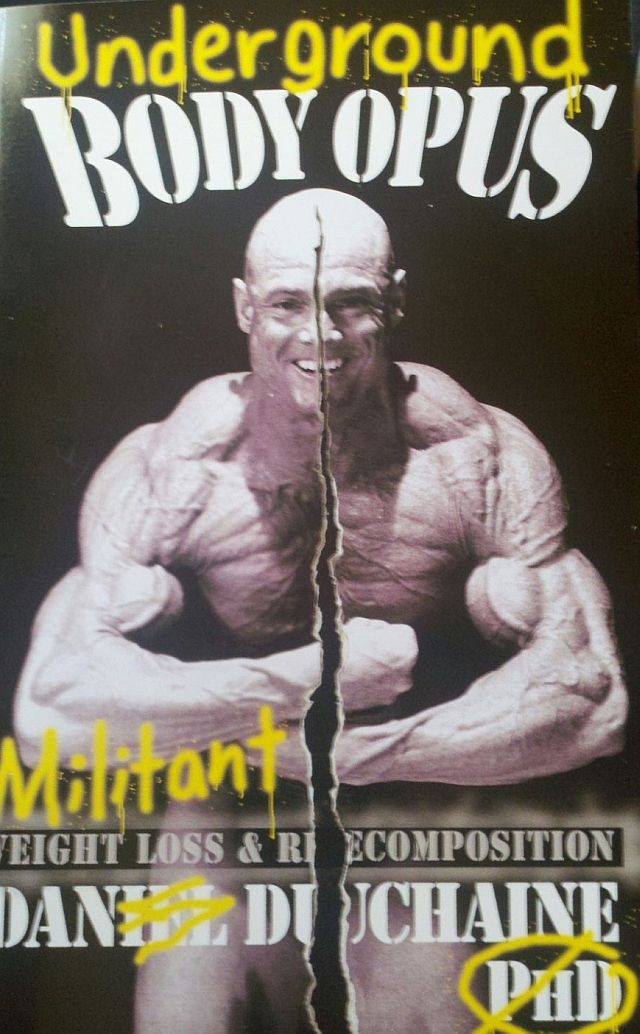
Would like to ask a few questions about the Iso-Caloric Diet. How does it compare to BodyOpus? At preserving LBM? Is it better than the High-carb Diet?
A: It seems like most naturals definitely tend to do better in terms of sparing LBM with a more isocaloric diet compared to a high carb diet (though some do just fine on high carb, maybe related to high insulin sensitivity or something else entirely). It’s hard to say whether a CKD will always show greater fat loss/LBM sparing compared to an isocaloric diet. For some people it does, for others it doesn’t. Once again I imagine this is due to insulin sensitivity and other issues like that.
To achieve ketosis I believe one must cut carbs to 0 or < 20. On the IsoCaloric what happens? some ketosis? Is body still glycogen burning? Or is there some kind of split or 50/50, since the carbs and fats both make up 33% of diet.
Technically speaking, ketosis can occur with any carbohydrate intake less than 100 grams/day, it’s just that it won’t develop to any great degree if carbs are higher (you’d probably need blood tests to pick ketosis up at 100 g/day of carbs). With an isocaloric diet, it would be rare for carb intake to fall below 100 grams/day and I would be very surprised if someone developed ketosis. however, people who have done a CKD for long periods of time who then shift to an isocaloric diet have reported that they will go into ketosis sometimes, especially in the morning. this may reflect that their body has adapted to the point that it ‘prefers’ ketosis, it’s hard to say.
As far as fuel utilization, you can pretty much draw a relationship between the amount of carbs in the diet/muscle glycogen levels, and how well or poorly the body will use fat for fuel. With very high carb intakes, fat utilization is blocked. As carb intake decreases (and muscle glycogen is depleted with weight training), the body will use more fat for fuel, both during exercise and at rest. obviously a zero carb diet will give the maximum fat oxidation because carb intake will be the lowest and muscle glycogen will be maintained at the lowest level (except during a carb-up of course).
However, this isn’t to automatically say that a CKD will cause more fat loss than an isocaloric diet. Ultimately fat loss is going to be the difference between fat burned (a function of diet and metabolic rate) and fat consumed. Yes it’s true that on a ketogenic diet you are burning the maximum amount of fat, but you are also consuming the most fat (compared to a high carb or isocaloric diet). So the difference in fat loss between a ketogenic diet (maximum fat burned but maximum fat eaten) and an isocaloric diet (less than maximum fat burned but less than maximum fat eaten) is likely to be small in the long run.
Do you think a 1 day carb up would be beneficial for this diet? To preserve LBM? Or possibly increase LBM?
I think a cheat day (or at least a cheat meal) is a good thing on any diet for a few reasons. One it helps to prevent cheating during the week if you know that you can have anything you want to eat that one time a week. Two, it may prevent metabolic rate from dropping so much since you’re eating more calories. Three, I guess it could help with LBM preservation and the extra calories might be anabolic, especially if they came after a weight training session.
And one question about BodyOpus. Have you maintained your strength while dropping to 7% BF from 10%. Strength in gym seems to be best indicator of whether muscle lost or maintained.
It depends. During my first Bodyopus diet cycle, the mistake I made was to diet too long (10 weeks straight), cut calories too much (way too much), and to do too much cardio. Although I didn’t lose much strength in my upper body, I did in my legs. I think this just reflected overtraining since I was doing twice a day cardio at the end there. Since then, I have done much shorter diet cycles, generally 4-6 weeks maximum and I rarely see a big drop in strength.

About the author
Lyle McDonald+ is the author of the Ketogenic Diet as well as the Rapid Fat Loss Handbook and the Guide to Flexible Dieting. He has been interested in all aspects of human performance physiology since becoming involved in competitive sports as a teenager. Pursuing a degree in Physiological Sciences from UCLA, he has devoted nearly 20 years of his life to studying human physiology and the science, art and practice of human performance, muscle gain, fat loss and body recomposition.